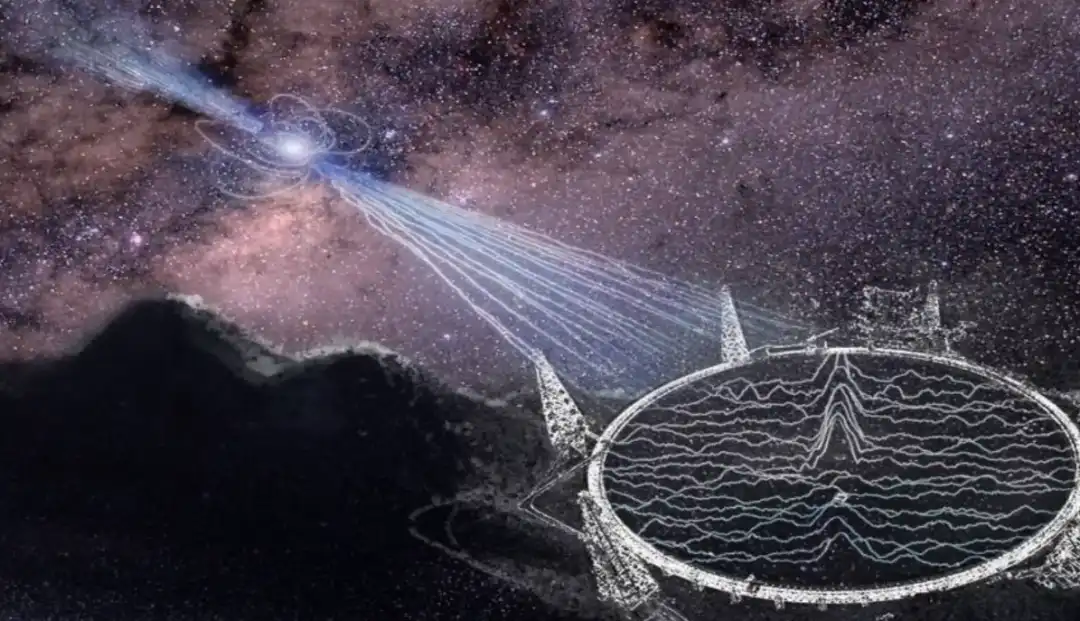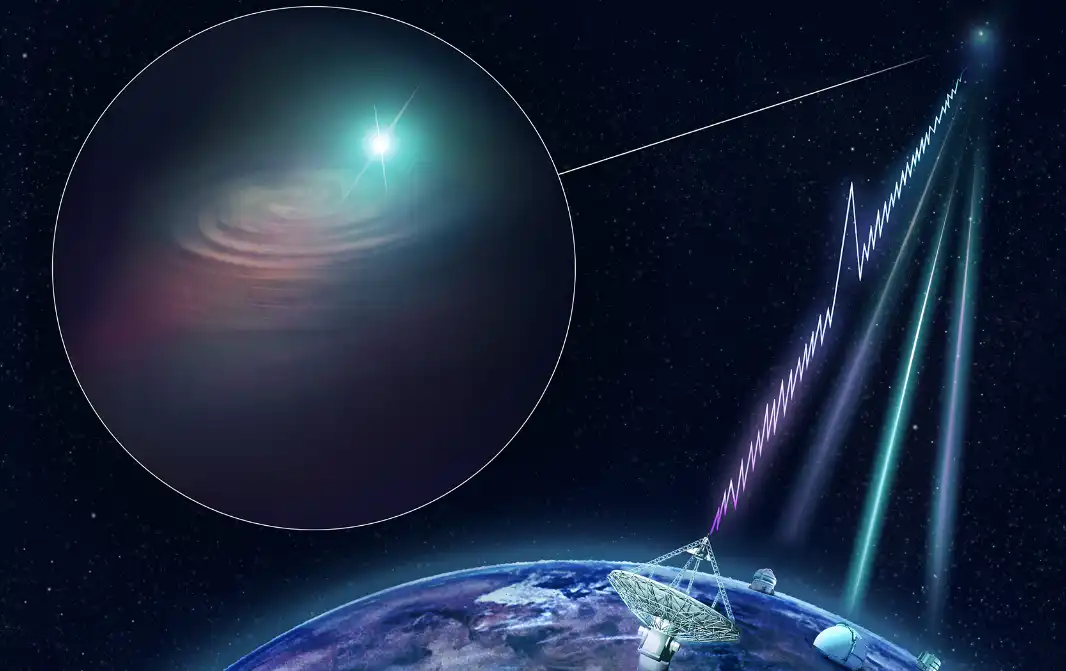Exploring the Nether with Sky Eye:Solve the mysteries of the universe, look up at the stars and think of peace
Enigmas of the cosmos, like the boundless expanse of the Milky Way, captivate our imagination. Since antiquity, humankind has been consumed by curiosity about the celestial canopy above, relentlessly exploring the uncharted reaches of the universe.
From ancients gazing up at the stars to modern astronomical telescopes, to China's FAST today, every technological advancement has been a small step in our attempt to unlock the secrets of the universe.

Not long ago, the world's largest single-dish radio telescope, China's Sky Eye located in Guizhou, once again showcased its extraordinary capabilities.
Like a pair of super large eyes, it stares at every corner of the universe, capturing a mysterious signal from 160,000 light-years away.
This major discovery has not only reaffirmed China Tianyan's technological strength but has also fueled people's insatiable curiosity about the mysteries of the universe.
Where did this mysterious signal come from? Was it celestial activity from a distant galaxy, or perhaps a call from an extraterrestrial civilization? After careful analysis, scientists finally deciphered the signal. It did not originate from extraterrestrial life but rather from a distant pulsar.
Pulsars, a special type of celestial body, constantly send out regular radio waves into space because of their extremely powerful magnetic fields and rapid rotation.

China's Sky Eye not only adds to our understanding of pulsars, but also provides new data for astronomy research.
Up to now, scientists have discovered 51 new pulsars via China's Sky Eye, with 11 of them being confirmed.
These new discoveries undoubtedly provide us with new perspectives for understanding the complexity and diversity of the universe.
As we look up at the stars and explore the cosmos, we must also take a moment to reflect on the actions of our own kind. The rapid advancement of technology has indeed given us the power to reach for the far corners of the galaxy, but in doing so, have we unknowingly edged closer to our own self-destruction?
Humans have created powerful weapons, but these same weapons could eventually be turned against us. Einstein’s warnings still ring true.:If humanity unleashes nuclear war, we may well end up back in the Stone Age, fighting with bows and arrows.

On the journey of space exploration, we should not only pursue the depth and breadth of knowledge, but also maintain the awe of life and the adherence to peace.
China's Sky Eye's major discovery reminds us to look up at the stars, while keeping our feet on the ground, cherishing every bit of peace and tranquility on Earth.
The vastness of the universe means exploration is endless. The feats of China's Sky Eye are not only a testament to its technological prowess, but also a tribute to the courage and wisdom of mankind in exploring the unknown. However, at the same time, we must always be alert to the fact that scientific power is a double-edged sword, as it can lead us to a vaster universe, but it can also push us to the abyss.
